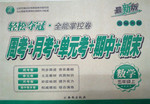题目内容
完形填空。
Many children act in TV shows. They work several hours everyday, __1__they can not go to regular
(正规的)__2__. How do they get their schooling?In Hollywood, about forty teachers give lessons for the children. Their work is very __3__ . They make sure that the child __4__ many different subjects. They make sure, too, that the child gets enough __5__ and play.
Children in Hollywood must attend classes twenty hours each week. If not, they can't __6__ in TV shows any longer.
TV children are usually good pupils, and most of their teachers __7__ this kind of work. They give the pupils lessons in many interesting __8__ , sometimes the
“classroom”is a Mississippi __9__, sometimes it is the inside of a spaceship. Often the pupils become __10__ stars.|
(1)A .so |
B .for |
C .but |
D .because |
|
(2)A .cinema |
B .factory |
C .school |
D .farm |
|
(3)A .important |
B .nice |
C .interesting |
D .good |
|
(4)A .learns |
B .knows |
C .forgets |
D .loves |
|
(5)A .money |
B .rest |
C .study |
D .practise |
|
(6)A .sit |
B .study |
C .work |
D .teach |
|
(7)A .like |
B .hate |
C .follow |
D .think |
|
(8)A .places |
B .rooms |
C .markets |
D .parks |
|
(9)A .bus |
B .train |
C .car |
D .boat |
|
(10)A .bright |
B .healthy |
C .famous |
D .lucky |
解析:
|
(1) 上句提到他们每天要工作几个小时,因而得不到正规的教育。(2) 不能上正规的学校。(3) 老师们的工作相当重要。(4) 他们要确保孩子们学会许多不同的学科知识。(5) 当然也要保证孩子们有足够的时间来休息和玩耍。(6) 孩子们必须在每个星期里上20节课,要不然的话,就不允许他们演电视。(7) 大多数老师喜欢这项工作。(8) 从下文可知他们在不同的地方上课。(9)Mississippi 是美国的内河----密西西比河,故用boat。(10) 这样的小孩经常成为明星。 |

 轻松夺冠全能掌控卷系列答案
轻松夺冠全能掌控卷系列答案
| |||||||||||||||||||||||||||||||||||||||||||||||||||||||||||||||||||||||||
完形填空。
Ma Lili is a Chinese 1 . She is twelve. That old 2 is American. The American doesn't know
(不认识)Ma Lili, Ma Lili tells her that she is Ma Lili. She is twelve. Ma Lili asks, “What is your name? How old are you?” She tells 3 name only(只)to Ma Lili. 4 she doesn't tell Ma Lili how old she is. She says 5 a secret.|
(1) A .boy |
B .man |
C .girl |
|
(2) A .man |
B .woman |
C .girl |
|
(3) A .she |
B .her |
C .its |
|
(4) A .But |
B .And |
C .Or |
|
(5) A .it |
B .its |
C .it's |
| |||||||||||||||||||||||||||||||||||||||||||||||||||||||||||||||||||||||||||||||||||||||||||||||||||||||||||||||||||||||||||||||||||||||||||||||
| 完形填空。 | |||
| One in four Chinese primary school students say they are too busy to eat fruit every day, while many dislike fruit for the simple reason that their 1 tell them to eat it. That is the result of a recent survey 2 the Chinese Association for Student Nutrition & Health Promotion(中国学生营养和健康促进协会), who last month issued a questionnaire among 1,500 children in Beijing, Shanghai and Guangzhou. They 3 28 percent didn't eat fruit every day and of those who did, one in seven did not eat enough. Among students who didn't eat fruit every day, 50 percent said it was because they "didn't have time" and 40 percent of those who didn't like fruit said it was because "my parents 4 me to". "Fruit is a natural source of many nutritional elements(营养元素), can balance a person's nutritional intake and help to 5 overweight(超重)," says Association director Du Yuxia. He says about 20 percent of primary school students in Beijing and Guangzhou are overweight, while the figure is 6 30 percent in Shanghai. Hu Xiaoqi, a nutrition expert with the Chinese Center for Disease Control and Prevention (CDC), believes a student should eat at least 150 grams of fruit a day. Moreover, fruit juice is not an adequate substitute because the fruit 7 contains more fiber and vitamins than juices, which are usually high in sugar and contain preservatives. Hu says primary school students should be encouraged to eat one or two fruits every day. 8 many students found they didn't have time to eat fruit before breakfast or in the evening, they should be encouraged to 9 to school and eat it during class breaks . Finally, she suggests that parents encourage their children to eat fruit, instead of forcing them. Ma Guansheng, deputy 10 of the CDC's Nutrition and Food Safety Institution(营养和食品安全机构), says: "6-12 years old is a crucial time for physical development. Children at this age need an adequate and balanced nutritional supply to guarantee the normal growth of the body." | |||
| ( )1.A. teachers ( )2.A. by ( )3.A. found ( )4.A. encouraged ( )5.A. reduce ( )6.A. hardly ( )7.A. themselves ( )8.A. However ( )9.A. bring ( )10.A. nurse |
B. relatives B. among B. discovered B. advised B. control B. nearly B. himself B. Therefore B. take B. director |
C. friends C. in C. invented C. forced C. increase C. mostly C. itself C. While C. carry C. president |
D. parents D. with D. thought D. liked D. balance D. clearly D. oneself D. Because D. get D. visitor |